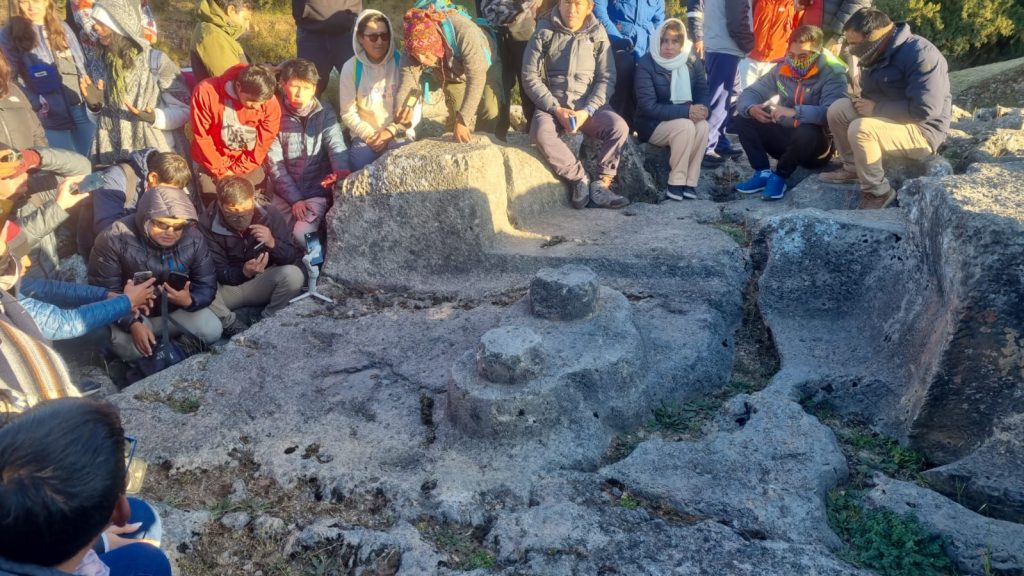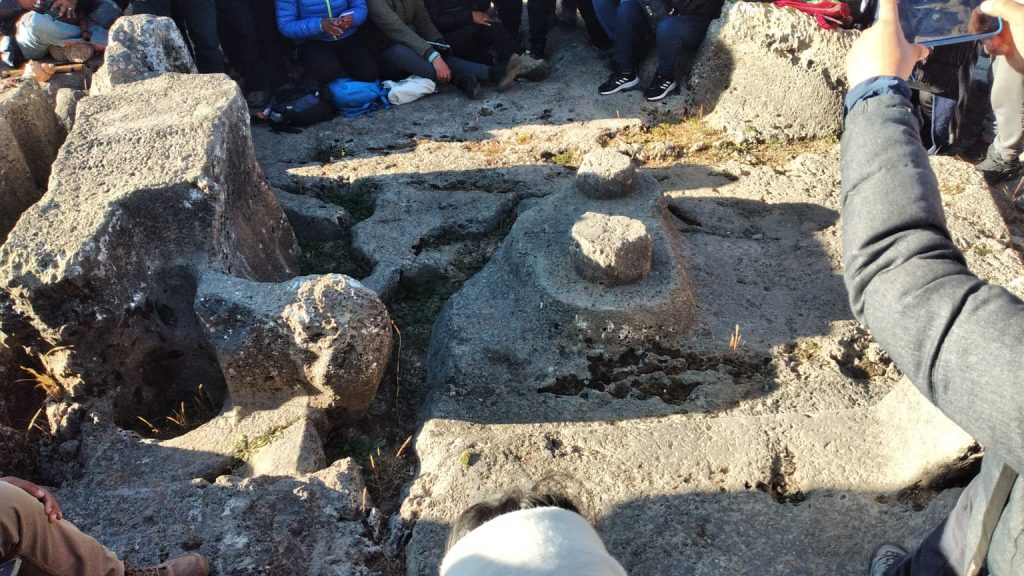The bonfires burned throughout the early morning of Tuesday while Andean priests “PAMPAMISAYOQ” recited prayers awaiting the first rays of Tayta Inti - the Father Sun - in the solstice that marks the beginning of the Andean New Year, a celebration of ancestral roots very popular in Cusco.
According to the beliefs of the Andean peoples, after the longest night of the year and with low temperatures, the Sun, the TAYTA INTI, returns with good energy. People gathered at the Sacred Apus, ceremonial centers, or city viewpoints to receive the first rays with their hands raised.
"We are in a waka (sacred place) to celebrate a new Andean year and we ask for peace, health, and unity for all the people of Cusco," is Q’enqo, Q’oricancha, Machu Picchu, which attracts visitors from different parts of the world every year, and CuscoPeru.com was present, offering their tutelary Apus: Picol, Ausangate, Huanacaure, and Salkantay, with offerings to Pachamama, the "Mother Earth."
"This celebration has crossed borders and is now celebrated throughout the continent. It is the birth of the Sun God. From our ancestors, the people of Cusco have always celebrated; it is our horizon. Today, we receive positive energies to have better living conditions. That is the Andean New Year, 'LIVING WELL, IN PEACE AND HARMONY'."
In the Central Andes and rural areas of the highlands, indigenous people made offerings to Pachamama for good harvests and wished for a good year in these lands for agriculture and the future of their families.
The celebration is also popular in northern Chile and southern Bolivia and coincides with the winter solstice in the SOUTHERN HEMISPHERE.
Each year on this date, the new fire, the new year, and the beginning of the agricultural calendar with the harvests are inaugurated.
The astronomical meaning of the solstice in South America is similar to that of other regions of the world but with some differences related to the geographical location. In South America, the winter solstice occurs around June 21st. These dates are opposite to those in the northern hemisphere due to the reversal of the seasons.
Furthermore, during the winter solstice in South America, the Sun reaches its lowest point in the sky, and the day is the shortest. Due to the continent's inclination towards the south, countries like Argentina, Chile, Uruguay, and parts of Brazil may experience shorter days and longer nights during this season.
The Andean New Year is a festivity celebrated on June 21st in various indigenous cultures of the Andes, such as the Quechua people. It is the birth of the Sun God, TAYTA INTI, it is the Andean New Year, to "live well, in peace and harmony." It is a new stage with good omens, marking the beginning of a new agricultural cycle and the rebirth of nature for the benefit of all.
The celebration is of great importance in Cusco, "The Center or Navel of the World." It is also celebrated in what was the great nation of Tawantinsuyo in the central highlands of Peru, in northern Chile, Bolivia, and southern Ecuador.
"We are in a waka (sacred place) to celebrate a new Andean year and we ask for peace, health, and unity for all the people of Cusco," is Q’enqo, Q’oricancha, Machu Picchu, which attracts visitors from different parts of the world every year, and they are welcomed by CuscoPeru.com, who were present, offering their tutelary Apus: Picol, Ausangate, Huanacaure, and Salkantay, with offerings to Pachamama, the "Mother Earth."



Happy passengers